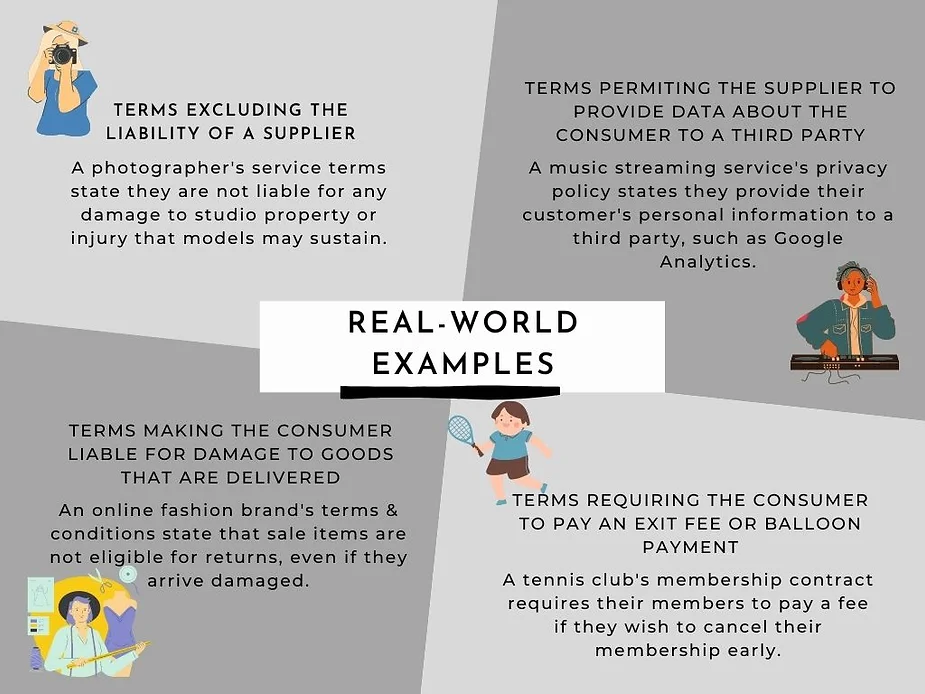Business Beware:
New Disclosure Obligations Could Affect You
In mid-2020 the NSW government announced changes to the Fair Trading Act which created new disclosure obligations for many suppliers of goods and services. Even though NSW Fair Trading initially provided a grace period (which has now ended) for businesses to educate themselves on the changes, many businesses seem to still be in the dark about what they need to do (or that they need to change anything at all). With 2020 being, well, 2020, it is understandable if you are one of those businesses that still needs to implement these changes - if so, consider this your crash course to ensure that your business complies with its new obligations.
Is your business affected?
Do you:
- have a business that supplies goods or services to consumers in NSW; OR
- receive a financial incentive for referring consumers to other suppliers?
If you answered yes to either of those questions then it’s a good idea to keep reading, as it’s likely these changes affect you.
What do you need to disclose?
Certain businesses are now required to ensure that, before supplying goods and services, they have taken “reasonable steps” to ensure the consumer is aware of the substance and effect of any terms or conditions that may “substantially prejudice their interests”.
What exactly does that mean? Let us break it down for you.
What’s a “consumer”?
The main circumstances when a person is “consumer” under Australian Consumer Law is if they:
- purchase goods or services for under $40,000 (note: this will change to $100,000 from 1 July 2021); or
- acquire goods or services of the kind ordinarily acquired for personal, domestic or household use or consumption.
What may “substantially prejudice” these consumers?
Some examples of terms that might be deemed to ‘substantially prejudice’ a consumer’s interests include terms that:
- exclude the liability of the supplier;
- provide that the consumer is liable for damage to goods that are delivered;
- permit the supplier to provide data about the consumer to a third party; or
- require the consumer to pay an exit fee, a balloon payment or other similar payment.
However, this list is not exhaustive, so chances are that if you’ve got a contract in place with your customers (which you should if you want to protect your interests), there may be terms that would be considered as substantially prejudicial to your customer’s interests (and hence you would need to diclose)

What about commission and referral arrangements?
If you receive a commission or any financial incentive for referring a consumer to another supplier, you also need to make sure need to take reasonable steps to ensure the consumer is aware of this. This disclosure simply requires the party receiving the incentive to disclose the existence of the incentive, not its nature or value.
How do you take “reasonable steps”?
The first step would be to engage a lawyer to review your contracts to identify any “substantially prejudicial terms”. They could then talk you through the options to figure out a form of disclosure that is seamless and works best for your business (eg a website pop-up).
The general rule is that the disclosure should be:
- clear (easily understood);
- upfront (so the consumer doesn’t need to search for the information); and
- automatic (a standard part of each transaction).
Penalties for Non-Compliance
Just in case you’re thinking “What’s the worst that could happen if I don’t comply?”…
Penalties for non-compliance are up to $110,000 for corporations and $22,000 for individuals.
So, in short, it’s important to ensure you comply!
Want to know more?
If you’d like to chat further about how we might be able to help you and your business, feel free to email us (or take a look around the website, to find out more about the firm).
*Disclaimer – We know most of you would realise this, but we wanted to reiterate that the above information is general in nature and does not take into account your personal circumstances. Legal, and other, information should not be relied upon in lieu of seeking appropriate professional advice, which we encourage you to do.



